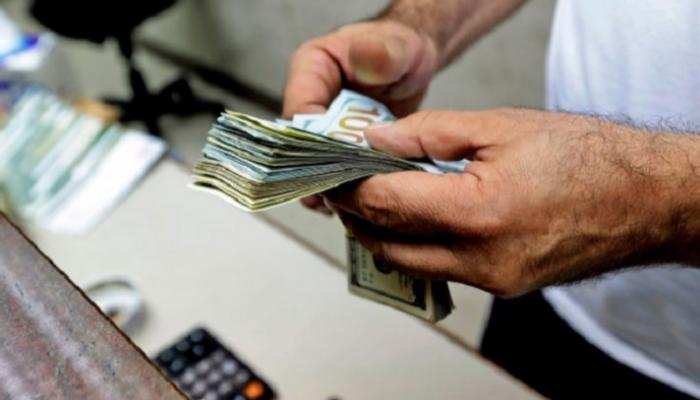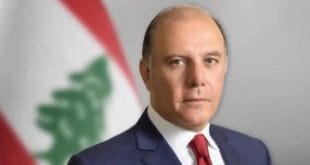بات الوضع الصحّي في لبنان مزرياً بعد الأزمة، خصوصاً مع التراجع الكبير الذي شهدته تقديمات مؤسسة الضمان الاجتماعي، ومع الانهيار الذي شهدته موازنة وزارة الصحة. هذا الأمر عرّض الأسر اللبنانية التي لا تمتلك تغطية صحية من أي نوع إلى الانكشاف على مخاطر الطبابة والاستشفاء، إذ بات يترتب على أفرادها أن يدفعوا من جيوبهم الخاصة الكلفة الأكبر منها بدلاً من الاعتماد بشكل كبير على وزارة الصحة. وهذا الأمر لا يبدو أنه قابل للتحسّن في المدى المنظور، إذ إن مشروع موازنة 2025 يترك التغطية الصحية التي توفّرها الوزارة على حالها السابقة التي وردت في موازنة 2024 حيث بلغت قيمة الاعتمادات الاستشفائية نحو 21.9 تريليون ليرة بينما جرى خفض الأموال المُخصّصة لشراء الأدوية من نحو 17 تريليون ليرة إلى نحو 12 تريليون ليرة.
في السابق، اعتمد نحو 45% من المقيمين على تغطية وزارة الصحة للاستشفاء، والتي كانت تُشكّل ملاذاً أخيراً للأسر التي لا تمتلك أي نوع من أنواع التغطية الصحية.
في المقابل، كان ما نسبته 55.6% من المقيمين في لبنان يتمتعون بنوع من أنواع التغطية الصحيّة ومن بينهم 45.5% مشمولون بتغطية الصندوق الوطني للضمان الاجتماعي، و20.1% تغطي خدماتهم الصحية صناديق المؤسّسات العسكرية، و11.5% تحت تغطية مؤسسات الأمم المتحدة، فيما 5.9% تحت تغطية تعاونية موظفي الدولة، و15.3% كانوا يحصلون على خدماتهم الصحية تحت مظلة شركات التأمين الخاصّة.
وفي حين لا يزال من هم تحت تغطية مؤسسات الأمم المتحدة يتمتعون بنفس خدمات الاستشفاء، فقد المشمولون بتغطية صندوق الضمان قيمة تغطيتهم، إذ أصبح يغطي بالحد الأقصى 20% من كلفة الاستشفاء، علماً أنها بلغت 10% في مرحلة سابقة. وتخلّى الكثير من اللبنانيين عن تأمينهم في الشركات الخاصّة بسبب التراجع الحاد في المداخيل وعدم القدرة على سداد اشتراكات التأمين.
هذا الحال أدّى بالأسر اللبنانية المحتاجة إلى اللجوء إلى الجمعيات الخيرية التي تحاول تأمين مبالغ لتغطية الحالات الصحية الخطيرة، والجزء الآخر منها بدأ بالبحث في ثرواته المتراكمة سابقاً، مثل الأراضي والذهب، وبيعها بهدف الحصول على الأموال للاستشفاء. هذا الأمر ينذر بمستقبل سيّئ على صعيد فقدان الثروات، وهو ما سيكشف الأسر أكثر فأكثر مع مرور الوقت وتبديد الثروات
المصدر: الأخبار
$377 Million Allocated for Healthcare and Medication in Lebanon
Lebanon's healthcare sector has reached a critical state following the country's ongoing crisis, particularly with the significant decline in services provided by the National Social Security Fund (NSSF) and the collapse of the Ministry of Health's budget. This deterioration has left many Lebanese families, especially those without any form of health coverage, vulnerable to the high costs of medical care. As a result, individuals are now forced to bear the majority of these expenses out-of-pocket, instead of relying heavily on the Ministry of Health.
Unfortunately, there seems to be no improvement in sight. The 2025 budget proposal maintains the healthcare coverage provided by the Ministry of Health at the same levels seen in the 2024 budget, allocating approximately 21.9 trillion Lebanese pounds for hospital services. However, there has been a notable reduction in the funds allocated for medication purchases, from around 17 trillion pounds down to 12 trillion pounds.
In the past, nearly 45% of residents relied on the Ministry of Health for hospital coverage, making it a last resort for families lacking any form of health insurance.
On the other hand, 55.6% of residents in Lebanon had some type of health coverage. Among them, 45.5% were covered by the NSSF, 20.1% by military institutions, 11.5% under UN organizations, 5.9% through the Cooperative of State Employees, and 15.3% through private insurance companies.
While those covered by UN organizations still enjoy the same healthcare services, NSSF beneficiaries have seen a significant drop in coverage. The NSSF now only covers a maximum of 20% of hospital costs, an improvement from a previous low of 10%. Additionally, many Lebanese have canceled their private insurance due to severe income declines, making it impossible to afford insurance premiums.
This situation has driven many Lebanese families to seek help from charitable organizations to cover urgent medical expenses. Others have begun liquidating their accumulated wealth, such as land or gold, in order to pay for healthcare. This trend raises concerns about the long-term loss of wealth, leaving families even more exposed to financial and healthcare risks in the future.
translated by economyscopes team
 سكوبات عالمية إقتصادية – EconomyScopes إجعل موقعنا خيارك ومصدرك الأنسب للأخبار الإقتصادية المحلية والعربية والعالمية على أنواعها بالإضافة الى نشر مجموعة لا بأس بها من فرص العمل في لبنان والشرق الأوسط والعالم
سكوبات عالمية إقتصادية – EconomyScopes إجعل موقعنا خيارك ومصدرك الأنسب للأخبار الإقتصادية المحلية والعربية والعالمية على أنواعها بالإضافة الى نشر مجموعة لا بأس بها من فرص العمل في لبنان والشرق الأوسط والعالم




